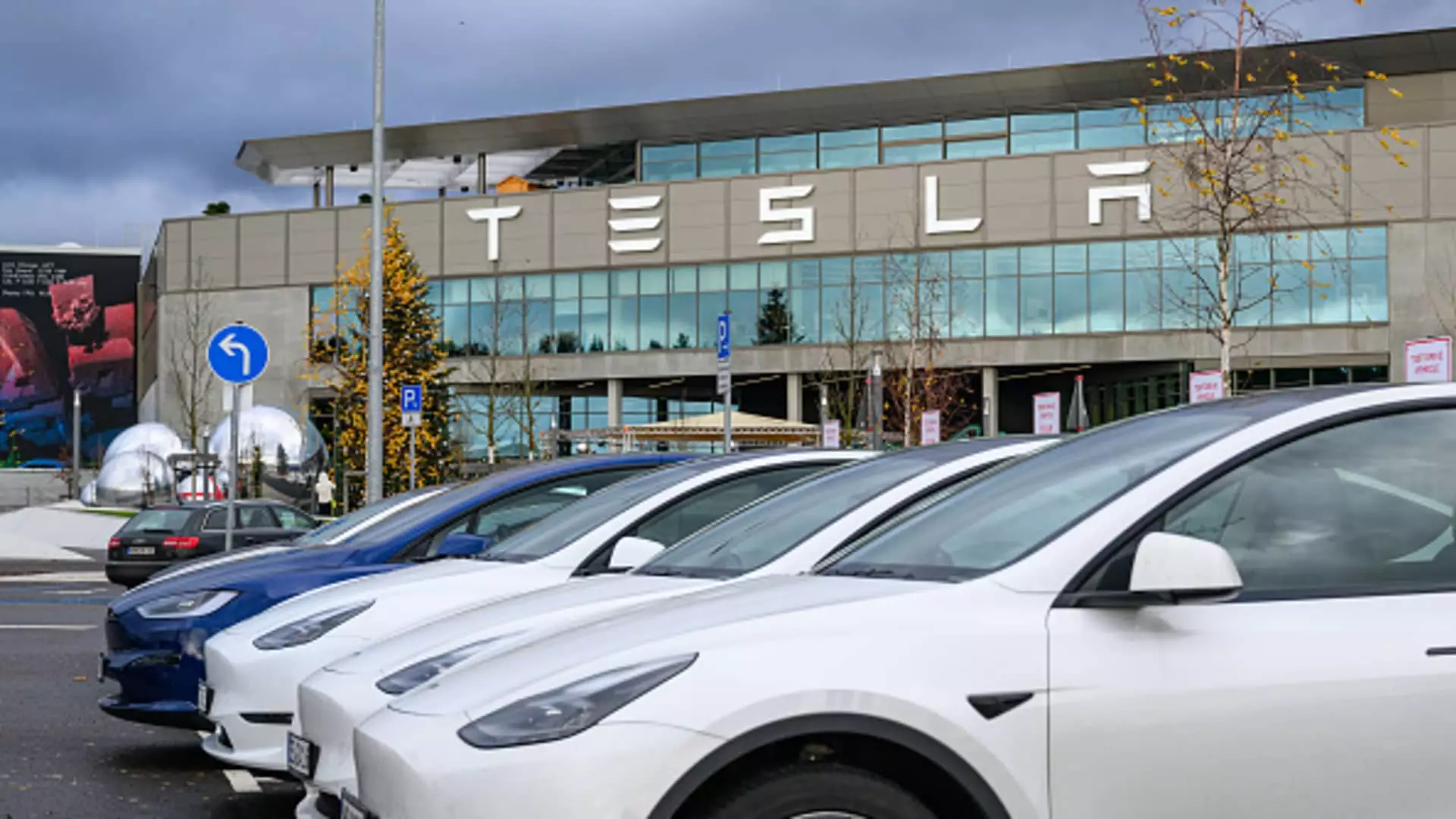In the high-stakes world of electric vehicles, Tesla has proven to be both a leader and a source of unpredictability. Recent weeks have seen a tumultuous trading landscape for the company’s stocks, reflecting broader market sentiment and the intricate relationship between corporate performance and political events. The latest surge in Tesla’s shares, coming after a dramatic drop, raises questions about the factors influencing investor confidence in the company and the potential impacts of political maneuvering.
Stock Market Volatility
On a challenging trading day, Tesla’s shares initially plummeted, only to regain ground later in the morning. This back-and-forth is emblematic of investor uncertainty that often characterizes the electric vehicle sector. Specifically, shares dipped by as much as 6% in premarket trading, only to bounce back and close up 0.7%. The recent week saw Tesla stocks falter by approximately 8%, marking one of its most significant declines since the days following the 2016 presidential election. Such volatility is not merely a reflection of the company itself, but also of the larger market dynamics influenced by broader economic factors and investor sentiment about the future.
The fluctuations underscore the inconsistency of market confidence in Tesla, especially when investors remember the stock’s sharp rally prompted by Trump’s win. Historically, investors seemed to associate Tesla’s fortunes with favorable political developments, particularly those involving regulations supportive of innovation in electric vehicles.
The Political Landscape
Tesla’s ambitious journey has been significantly shaped by the political environment, especially as former President Trump has made headlines with his policies. His administration, along with Musk’s close relationship with him, fueled speculation about positive repercussions for Tesla in terms of regulatory support. Musk has been very visible in the political arena, even being appointed to lead a new advisory commission— which has surprisingly drawn attention due to its acronym sharing a name with the popular meme-driven cryptocurrency, Dogecoin. This unique blend of technology and culture indicates the unusual intersection between innovation and politics.
Furthermore, Musk’s substantial financial backing of Trump’s campaign highlights a complex intertwining between corporate wealth and political influence. How much this has affected Tesla’s stock performance is open to interpretation but undeniably offers insight into the machinations of investor sentiment.
The crux of Tesla’s future lies in its development of autonomous vehicles, an area that Malcolm has been directing considerable energy and investment towards. The prospect of “robotaxi” services has been announced with much fanfare, yet the anticipated full autonomy—a promise made famously by Musk—remains unfulfilled. Currently, Tesla’s Autopilot and Full Self-Driving features necessitate human intervention, which raises questions about their true scope and reliability.
This expectation is critical because regulatory frameworks around self-driving technology can make or break automakers subtly positioning themselves in a competitive market. The potential announcement from Trump’s transition team to pursue a federal regulation scheme for autonomous vehicles would for sure be a notable boon for Tesla. This potential framework could clear the path for what Tesla considers the future of transportation, allowing more rapid deployment of its self-driving innovations.
Tesla, despite its cutting-edge technology and strong market presence, is also facing significant challenges. Recent data published by the European Automobile Manufacturers Association revealed a dramatic 40.9% drop in Tesla’s vehicle sales in November, in stark contrast to a more modest overall dip in electric vehicle sales across the bloc. This statistic suggests underlying issues that might not solely hinge on market sentiment but could indicate potential consumer dissatisfaction or heightened competition.
Moreover, Tesla’s decision to recall nearly 700,000 vehicles due to a tire pressure monitoring system issue points to the ongoing challenges the company faces in maintaining quality and trust. While the company’s model allows for over-the-air updates, which can quickly address software-related problems, such recalls can create negative headlines that weigh on investor confidence.
The future for Tesla, while shimmering with potential, is clouded with volatility sparked by market fluctuations, political relationships, and regulatory uncertainties. As Musk continues to champion the cause of electric vehicles and autonomous technology, he must navigate a complicated landscape that demands not just innovation but also effective management of external pressures. The coming months will be crucial for Tesla as it strives to stabilize its market position amidst growing competition and shifting regulatory landscapes, with investor sentiment hanging in the balance.


Leave a Reply